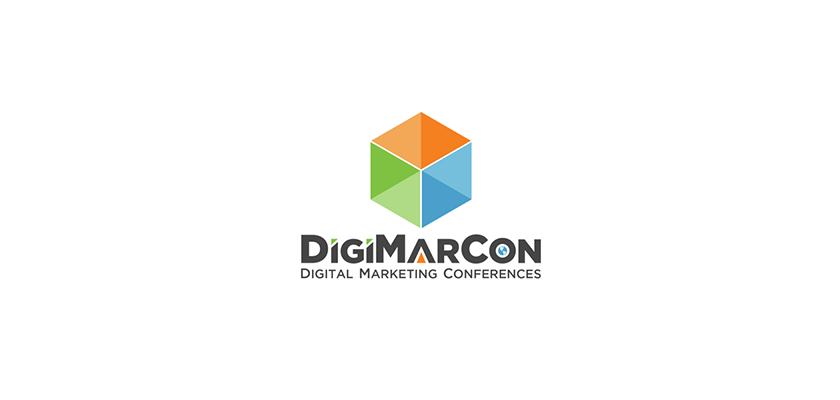
Is the Metaverse the Future of Digital Marketing?
In 2021, Facebook rebranded to ‘Meta’ and announced that the metaverse would be its new focus moving forward, with Mark Zuckerberg stating his intention to build a metaverse that would become ‘the next internet’.
As marketers, we of course began to speculate about what digital marketing would look like in a new virtual world.
Although the concept of the metaverse may still feel mysterious to some, more and more brands are seeing the opportunity that the metaverse presents to connect with audiences in ways that were never possible before and provide exciting and memorable brand experiences.
With the metaverse predicted to become an $800 billion market by 2024, it certainly isn’t going away anytime soon, and the opportunities presented by metaverse technology are seemingly endless.
From the memes about Mark Zuckerberg’s avatar to NFTs and virtual concerts, it feels like the metaverse is the internet’s favorite buzzword right now. But what is the metaverse exactly?
And what does it have to do with digital marketing? In this blog, Social Chameleon will be providing the run-down on metaverse technology, separating fact from fiction, and explaining what the metaverse means for your digital marketing strategy.
What Is the Metaverse?
Put simply, the metaverse is an online digital world that which users can immerse themselves using virtual reality (VR) or augmented reality (AR). In the metaverse, users create avatars that move through a 3D world where they can interact with others and the environment around them.
The concept of a metaverse is not new, and the term was actually coined in the world of science fiction 30 years ago. The eerily accurate novel described the metaverse as a parallel online world, which could be accessed by VR headset-wearing users.
So far, so science fiction right? Well, the metaverse is about to become reality, and some argue that it is already here.
In a press release, Facebook (now Meta) described the metaverse as a set of virtual spaces where you can create and explore with other people who aren’t in the same physical space as you. You’ll be able to hang out with friends, work, play, learn, shop, create, and more.”
When we talk about the metaverse today, the most tangible examples are platforms such as Roblox, Minecraft, and Fortnite that use virtual reality to create increasingly sophisticated online worlds.
On these platforms, users move through a virtual world, create avatars and interact with others; they can even buy products and attend virtual events and experiences.
Even if you haven’t heard about them yet, a huge potential market exists in these spaces, with Robox boasting 202 million active users in April 2021.
The Metaverse Explained
Separating the fact from the science fiction possibilities and defining what the metaverse means is a tricky task, partly because companies such as Facebook (Meta) and Microsoft are working to build their own versions, meaning that the term is fluid and ever-changing.
Although the definition of the metaverse can feel loose and up to interpretation, many people agree on a number of key factors that make something a metaverse. Venture capitalist Matthew Ball has outlined some of the key characteristics of metaverses:
- A fully functioning online world. Users should be able to move around and interact with an environment in a similar way that they would in real-life, with opportunities to create, sell, and interact with others.
- Exists in real-time. The metaverse has a concept of time that matches up with the real world.
- Always active. Unlike a game where options are limited and there is a set beginning, middle, and end, the metaverse should be never-ending, and it isn’t possible to ‘complete’ the metaverse. When users leave them, they do not end and they go on indefinitely.
- Users have individual agencies. They can choose what they want to do in the metaverse and can be doing separate things at the same time. Users can also create their own content that they and other users can enjoy.
What Is Metaverse Marketing?
Marketers always strive to be up to date with the latest technological advancements, so it’s no wonder that the prospect of metaverse marketing has become a hot topic in the digital marketing world.
As the line between the real and virtual world is increasingly blurred, the metaverse is set to become a place where people spend more of their time, experience brands and even buy virtual products.
Brands are turning their digital marketing strategy towards the metaverse to stay relevant to a millennial or Gen Z audience, who are considered to be the most enthusiastic adopters of the metaverse.
Gen Z consumers spend twice as much time socially interacting in the metaverse as they do in real life. Although many users may be young, their influence and purchasing power are only set to grow over time.
Examples of Metaverse Marketing Strategies
Create Virtual Experiences
More and more brands are using metaverse technology to their advantage to drive brand awareness and give audiences a fun and exciting experience.
Shoe and skateboard brand Vans collaborated with Roblox to create a virtual skate park where users could practice their virtual skateboarding skills, as well as buy Vans products.
Offer In-World Purchases
An increasing number of consumers are blurring the lines between purchases in the real and virtual world, with 65% of Gen Z consumers having spent money on a virtual item that exists only within the confines of an online environment.
In fact, the in-game purchase market is set to be worth $74.4 billion by 2025.
Luxury fashion retailer Balenciaga has partnered with Fortnite to design virtual clothing and accessories that users can purchase for their avatars.
In fact, a digital Gucci bag was recently sold on Roblox for more than $4,100, which outbid the item’s real-life value.
Host Virtual Events
Virtual events and concerts that bring fans together with stars from the comfort of their own homes have become increasingly popular in the metaverse: over 33 million people saw Lil Nas X’s virtual concert on Roblox.
Meet Social Chameleon
For brands, the metaverse produces a unique opportunity to reach audiences in ways that were never possible before – allowing audiences to experience brands from the comfort of their own homes.
Although current iterations of the metaverse can feel geared towards a younger audience, investment from some of the world’s biggest tech companies suggests that the influence of the metaverse will be as groundbreaking as the invention of the internet or social media.
Social Chameleon is a full-service digital marketing agency for metaverse. Their team of digital marketing experts can help you to understand how to leverage the latest digital marketing trends and what they mean for your business.
To find out more about the latest industry insights, visit their blog, where they share hints and tips about the latest digital marketing trends.




















